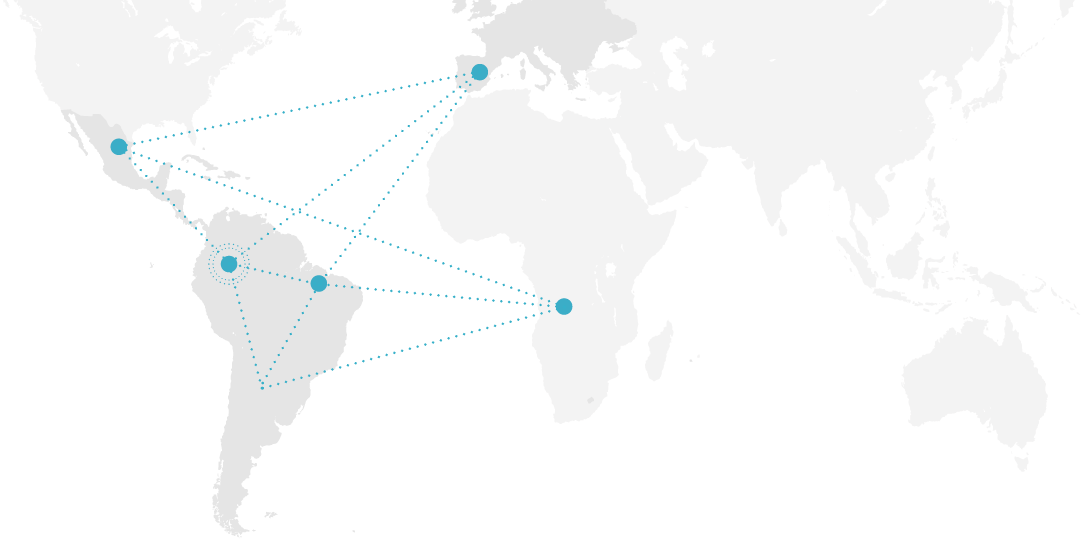TRIANGULAR COOPERATION (TC)
The Ibero-American General Secretariat (SEGIB) has been working for more than a decade on strengthening South-South and triangular cooperation and its promotion around three interrelated core aspects: the systematisation of information and the generation of knowledge; the collaborative generation of action capabilities for sustainable development and the international positioning of this cooperation modality.

ITS VALUE
Triangular cooperation has been consolidating its position internationally as an effective cooperation modality, able to offer adaptable, flexible solutions to current development challenges.
This has been made abundantly clear by the United Nations on several occasions. An important milestone in this regard was the recognition in 2015 of triangular cooperation as a means of effective implementation of the 2030 Agenda for Sustainable Development.
More recently, in 2019, the relevance of TC was reflected once again in the special attention it received at the Second United Nations High-Level Conference on South-South Cooperation (PABA +40), held in Buenos Aires, and that in its Final Declaration, it dedicated two points (12 and 28) to this type of cooperation modality.
THE EU AND TRIANGULAR COOPERATION
But recognition of the value of TC does not come only from the UN. The New European Consensus on Sustainable Development, a plan signed in 2017 to adapt the EU’s development policy to the 2030 Agenda, includes a commitment to establish new partnerships with the most advanced developing countries, through, among other tools, the promotion of South-South and triangular cooperation.
ACHIEVEMENTS AND CHALLENGES
In order for triangular cooperation to play a successful role in the international cooperation system, there are still challenges and aspects in which it can and must improve. To achieve this, it is essential to gain a better understanding of how it works, and as recognised in the final declaration of the PABA +40, “to provide more evidence and rigorous information on its magnitude, its scope and its effects”.
IBERO-AMERICA AND TRIANGULAR COOPERATION
The Ibero-American space has come a long way and has much to share in terms of SSTC. The member countries, mentored since 2007 by the SEGIB and since 2010 by the Ibero-American Programme for the Strengthening of South-South Cooperation (PIFCSS), are working on improving methodologies to develop their own systems that assess the quality and effects of the programmes; data collection at national levels; the systematisation of experiences; and the creation of guidelines that facilitate the management of triangular cooperation.
MORE AND BETTER TRIANGULAR COOPERATION
The Innovative Triangular Cooperation for a New Development Agenda project is one more step in this process of collective construction of more and better triangular cooperation, initiated, more than a decade ago, by the SEGIB.